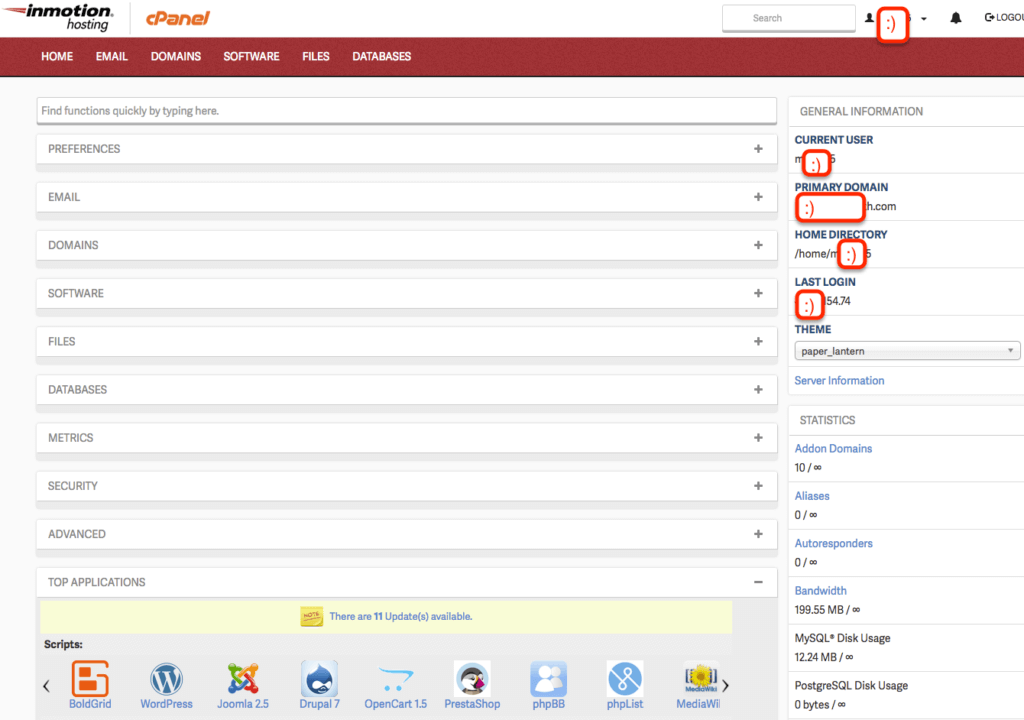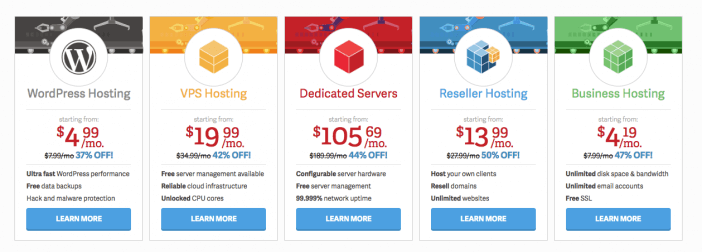Web hosting is reserved space on a computer server that stores & serves files related to a website (ie, HTML, CSS, images, etc) to browsers when requested via the Internet. Web hosting is usually connected to a human-readable domain name.
As an analogy, web hosting is like a plot of physical land…but on the Internet. Like a physical plot of land, it’s usually connected to a known address, and it’s only truly useful if you build something on it.
Also like physical land, website hosting can come with an infrastructure to make your project easier / cheaper. It also has many tradeoffs.
That’s the short version. But there’s more to website hosting than the definition.
Web Hosting Explained
In plain language, web hosting stores & serve website files to be delivered to whoever asks for them via the Internet.
Everything that you access on the Internet is ultimately made up of files delivered by a server. Web hosting refers to the server or section of a server where the files that make up a website are “hosted”.
Technically, any computer configured as a server and connected to the Internet (e.g., your home computer) can provide web hosting.
However, in practice, web hosting almost always refers to space on a leased pre-configured server that has a high-capacity connection to a major Internet network.
How Does Web Hosting Work?
Web hosting works by taking a server, putting website files on it, adding software that provides instructions to access those files, then connecting a domain name so that people on browsers can easily find those files.
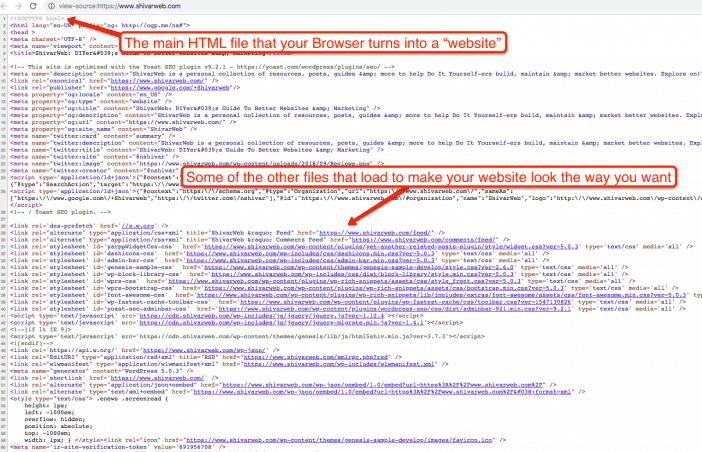
Web hosting usually has software installed to make management simpler. This is referred to as a software “stack”. The most common “stack” is LAMP, which refers to
- Linux – the operating system of the server. Some web hosts use Windows, but it’s much less common.
- Apache – the software that sorts and filters requests for files. Some hosts use NGINX, which is usually faster, but is not as widely supported by website software.
- MySQL – the default database that the server has for websites that use databases. Some hosts allow other types of databases.
- PHP – a programming language used by many website software programs. The host will usually support other languages as well.
Most of these settings are pre-configured and only used by non-developers to shop around and compare apples to apples among hosting companies. Web hosts usually have server / hosting management software (e.g., cPanel) installed to make installing website software, managing files, changing settings accessible for non-developers.
Here’s an example from InMotion Hosting’s cPanel. You see this when you log into your account.
How Does Web Hosting, Domains, Email and Web Software Work Together?
Hosting stores your files. Domains make finding your files easy.
Website software (e.g., WordPress) makes it simple to create, manage and manipulate lots of website files.
Email software can also live on your web host and will manage & sort email requests (and receipts) on your server. Due to spam, many companies use their domain settings to send emails elsewhere (e.g., Google Suite for Business or Outlook).
Here’s a real-life example.
A few seconds (or minutes) ago, you clicked on something that made your browser send a request to my web hosting for all the files located at https://larryludwig.com/what-is-web-hosting/
That request was sorted and routed via my domain name / DNS settings to a VPS server at InMotion Hosting‘s datacenter in Los Angeles. My website’s files live on a section of that server with dedicated resources to store & serve my files. In the screenshot, I have my domain “pointed” to InMotion’s servers.
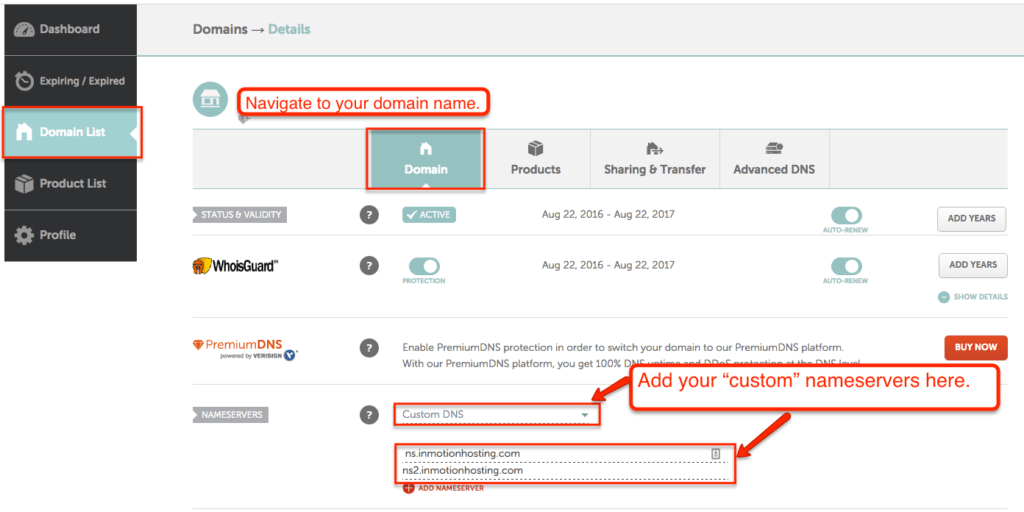
The pre-installed Apache software looked at it and said “yep, this request is legit…go to this location for everything that you need”.
A bunch of files live at that location (created and managed by a piece of software called WordPress) that were executed. They went and pulled information from the mySQL database, built out the files that needed to be delivered, and handed them off to the server to send out.
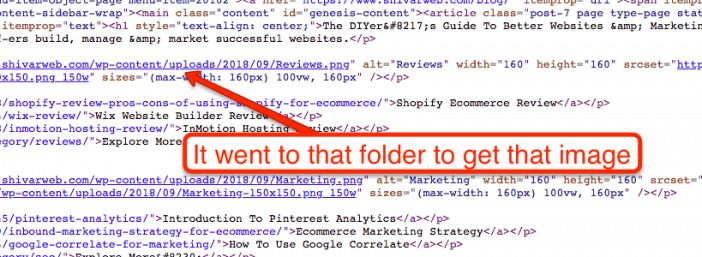
Those files were pulled in and loaded in the correct order by your browser to show what you are seeing now.
A little bit later today, I might log into my server or WordPress installation and edit this page.
Ok.
That might all sound *massively* complicated. And it is. But your house or car or dishwasher might also sound that complicated if every step was explained.
Like your house or car or dishwasher though, most everything is pre-configured and set up to work well every time. The important thing to know is that the process is not magic and every website on the Internet goes through a very similar process.
How Much Does It Cost To Host A Website?
It depends 🙂
The cost of hosting a website usually depends on the number of resources that you want/need. Resources include not only memory & storage space, but also human customer support, bandwidth, software, security, company reputation, etc. Here’s an example from the company that hosts this website.
The vast majority of websites can run just fine on shared hosting. Shared hosting is where a hosting company leases out accounts on a server and manages resources among them all. Shared hosting will usually run from $5 to $20 per month depending on features, plans, and discounts.
Get a sense of different shared plans on my guide to web host.
The pricing spectrum beyond shared hosting gets a bit tricky to price out. A VPS hosting plan is where a hosting company divides up the resources of a server so that you have known resources. VPS pricing usually runs $25 to $150 per month depending on features, plans, and discounts.
Get a sense of different VPS plans on my Guide to VPS hosts here.
Now – the top end with dedicated hosting, managed hosting, specialized WordPress hosting, reseller, etc gets out of the scope of this explainer. However, I do want to touch on Cloud hosting. Cloud hosting is where you (usually) pay for use on one of the big cloud networks like Google, Amazon or Microsoft. It can be incredibly cheap…or way more expensive than you’d want. That’s because shared / VPS hosting operates on a bundled pricing and cloud is straight a la carte.
Get a sense of different WordPress hosting plans, and Reseller hosting plans.
Additionally, even shared hosting accounts will usually allow you to host multiple websites on a single account. So when you are comparing costs, be sure to look at *your* total value for your use.
Can You Get Free Web Hosting?
Yes…but there will be strings attached, so you’ll pay in some form or fashion.
You will either pay with advertising (Wix Free Plans, WordPress.com Free Plans, etc), poor service, and hard limits (Blogger, Google Sites, etc) or with complexity (Google Cloud).
There are some companies that claim to offer free web hosting…but I would be *extremely* wary. Remember that if you are not paying for the product…you are the product.
What Makes a Good Web Host?
A good web host matches your budget & goals. They provide what they promise. I am not one to preach that there is “one best host” or a single way to be a good host, because everybody needs different things.
Some people value cost above all – and do not mind poor performance or limited customer support if they get a genuinely good deal. Some people want excellent service no matter what. Some people want a company that is independently owned and some want a big name-brand.
There absolutely are hosting companies that are better than others, but the biggest factor is your own goals and expectations.
I have a guide to choosing the best shared hosting for your project here (along with similar guides to WordPress and VPS hosting).
How Do I Purchase Web Hosting?
Find a hosting company that meets your goals, pick your plan and buy! Most established hosting companies are pretty good at “onboarding” – ie, moving a new customer to an active customer.
Go to my guide to best shared hosting companies, take the quiz, and head over. Once you’ve purchased hosting, you’ll also need a domain name to “connect” to your account. From there you can install web software (like WordPress). I wrote a start to finish setup guide.
Popular Web Hosts
| Review | My Rating | Uptime | Uptime Guarantee | Money Guarantee | Free Migration | Website |
|---|---|---|---|---|---|---|
| A2 Hosting | 8.5/10 | 100% | 30 days | Learn More | ||
| BigScoots | 8.0/10 | 99.99% | 45 days | Learn More | ||
| Bluehost | 9.5/10 | 99.74% | 30 days | Learn More | ||
| DreamHost | 9.0/10 | 100% | 97 days | Learn More | ||
| FastComet | 8.0/10 | 99.99% | 45 days | Learn More | ||
| GoDaddy | 7.5/10 | 99.9% | 30 days | Learn More | ||
| GreenGeeks | 8.0/10 | 99.9% | 30 days | Learn More | ||
| HostGator | 9.0/10 | 99.92% | 30 days | Learn More | ||
| Hostinger | 8.0/10 | 99.94% | 30 days | Learn More | ||
| HostPapa | 8.0/10 | 100% | 30 days | Learn More | ||
| Hostwinds | 7.0/10 | 100% | 3 days | Learn More | ||
| InMotion Hosting | 9.0/10 | 99.89% | 90 days | Learn More | ||
| IONOS by 1&1 | 7.0/10 | 99.93% | 30 days | Learn More | ||
| iPage | 7.5/10 | 99.83% | 30 days | Learn More | ||
| Namecheap | 9.0/10 | 99.99% | 30 days | Learn More | ||
| Network Solutions | 6.0/10 | 99.97% | - | Learn More | ||
| SiteGround | 8.5/10 | 99.97% | 30 days | Learn More | ||
| Web Hosting Hub | 8.0/10 | 99.99% | 90 days | Learn More | ||
| Web.com | 7.5/10 | 99.98% | - | Learn More |
Can You Transfer Web Hosting?
Yes! Absolutely. One of the best things about self-hosting rather than using a hosted website builder is that you can generally pick up and leave for better pastures.
You will need to make sure that the plan and company that you’ve picked have the same “tech stack” – (ie, Linux). Many times hosting companies will do the transfer for you for free, but I also have a somewhat dated but still accurate guide to transferring manually.
Next Steps
Now that you know about web hosting, be sure to put your knowledge to use. Find the right hosting company for you or learn how to optimize the account that you already have or check out the related post below to learn more!
Related Articles
- What is VPS Hosting & How Does VPS Hosting Work?
- What is Shared Hosting?
- What is WordPress Hosting?
- What is Cloud Hosting?
- What is Reseller Hosting?
- WordPress Hosting vs. Web Hosting
- Web Hosting vs. Domain Registration
- The Best WordPress Hosting
- The Best Web Hosting Services
- LAMP Stack Explained
- 16+ Pros & Cons of Hosting Your Own Blog or Website
- The Best Reseller Hosting
- 11+ Best Managed WordPress Hosting
